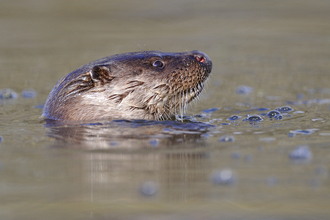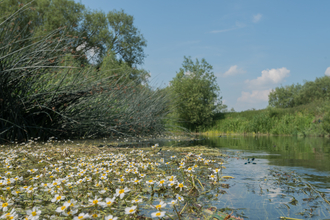For 25 years, I've been kayaking the River Thames. I've paddled every glorious mile from the source, just upstream of Lechlade, all the way to the Houses of Parliament and, until recently, held the world record for paddling its length!
Just over 10 years ago, I was kayaking an especially beautiful stretch and saw a for sale sign outside a dilapidated old bungalow. My soon-to-be wife, Helen, and I bought it. We lived at the riverbank on a houseboat for three years and built our dream home there where we intended to bring up our three children.
The Thames is a much more nature-rich river than many might realise. We see kingfisher every day, the grebes court outside our back door, swans have nested in our garden and otter cubs wrestle over eels at night on our deck.





